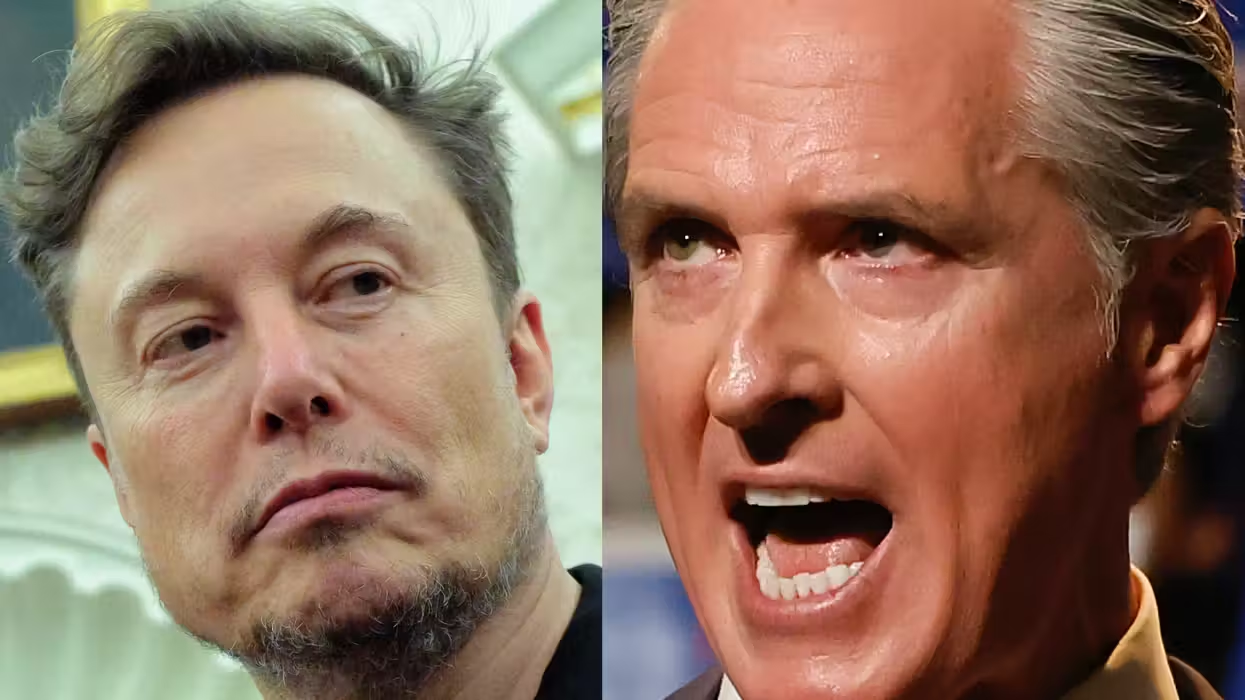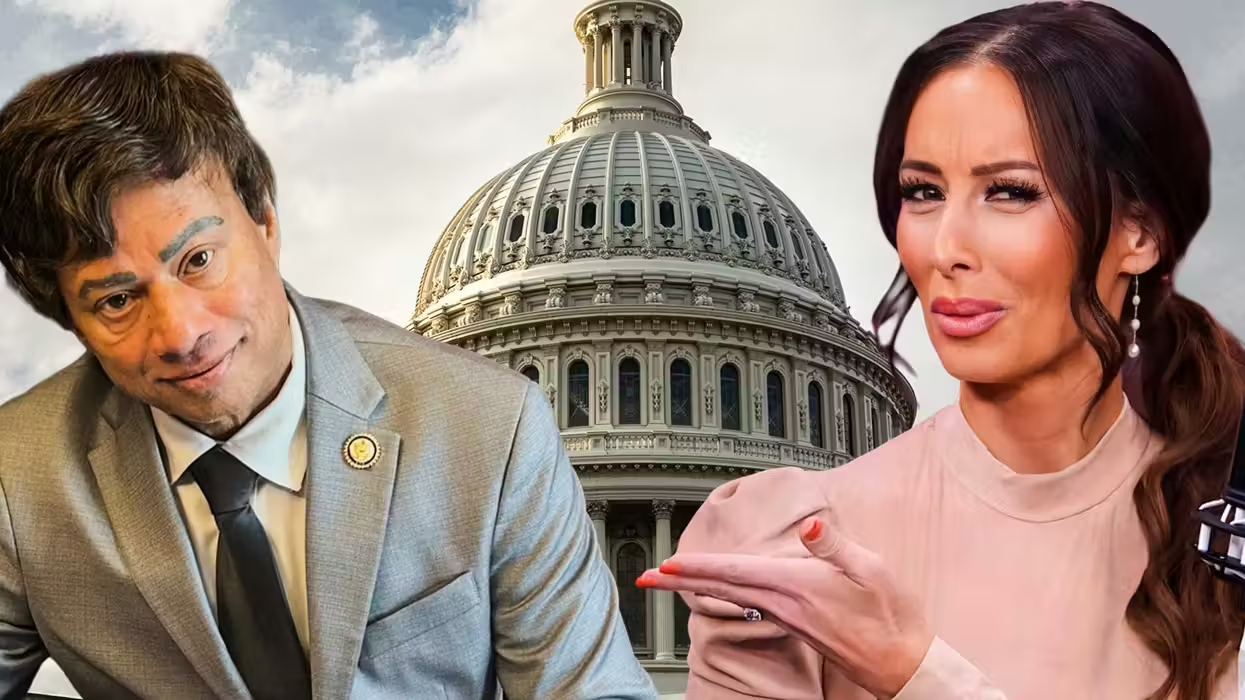
© 2025 Blaze Media LLC. All rights reserved.
Welcome back to the story of Puerto Rico. If this is your first time reading an analysis by Conservative Review on the debt situation unfolding in Puerto Rico, you may consider starting at the beginning of the series here. We began with Puerto Rico’s debt problem. Next, we allowed the reader to explore the various solutions being proposed in Washington, including options like Chapter Nine bankruptcy and a bailout from Washington.
That brings us to our conclusion: a reasonable and conservative solution for Puerto Rico. At Conservative Review, we believe that changing the law to allow Puerto Rico to declare bankruptcy would be unfair and have far reaching implications on the municipal bond market. Allowing for bankruptcy retroactively would be an implicit default on the original terms and obligations of the debt contracts, a situation with adverse effects on the entire municipal bond market, a situation we also believe would be unconstitutional.
Secondly, we adamantly oppose any sort of bailout. America has seen the destruction from the moral hazards that creep into industries and businesses that count on taxpayer funds to subsidize their failures and problems At Conservative Review, we believe that such a moral hazard percolating in the minds of state and local politicians would be disastrous, too.
Conservative policy should not be sympathetic to cronyism and bailouts. However, that does not mean conservatives must oppose every solution. In fact, there are conservative ways in which Congress can help the people of Puerto Rico – and it only requires five simple words: GET OUT OF THE WAY.
What does that look like? Well, here are a few suggestions:
- Repeal the Merchant Marine Act of 1920 – or Jones Act. The Jones Act is an outdated law that requires cargo that is hauled between or within the United States to be hauled by ships that are built, owned, and managed by U.S. companies. The law has a noticeable impact on Puerto Rico, where it has increased the cost of imported good and depressed trade with the mainland.
In fact, according to BloombergView it costs nearly double for Puerto Rico to ship a 20-foot container to the states than it does to Jamaica or the Dominican Republic. The U.S. ships available to Puerto Rico that are necessary to comply with this law are often old, energy-inefficient, and require labor expenses nearly five times higher than than foreign options. - Repeal the Minimum Wage Laws. The federal minimum wage of $7.25 impacts each state and territory differently. But this is particularly the case in Puerto Rico, where $7.25 an hour is cost prohibitive for local businesses compared to relative wages paid in Puerto Rico. For example, at seven and a quarter dollars, that is equal to 77 percent of per capita income in Puerto Rico, whereas it only amounts to 28 percent on the mainland.
Furthermore, a report by Anne Krueger of John Hopkins University and Stanford University, titled: Puerto Rico’s Growth and Macroeconomic Situation and Prospects, finds the federal minimum wages damaging to the island. She writes:
[Factors Retarding Growth:] Employers are reluctant to hire because the federal minimum wage is high relative to skill levels and competitors. This makes some industries (such as tourism and activities using unskilled labor) less competitive with other Caribbean islands and globally than they otherwise would be.
- Provide Puerto Rico Flexibility in Current Welfare Assistance. The welfare system has fed into an environment of government dependence among the people of the small island. This dependence is partially due to the welfare mandates and stipulations forced upon it by Washington. Because the welfare payments are considered so high relative to Puerto Rico’s standard-of-living, the citizens are prone to seek welfare over work.
As Krueger suggests, Washington should provide more welfare flexibility to Puerto Rico; allowing them to demand higher thresholds for obtaining, and perhaps lower benefits in general, to discourage living off the state. - Remove Triple Tax Exemption Status. Looking forward, Washington should level the playing feel among the territories and the states when it comes to tax advantages regarding debt. The Triple Tax Exempt status has allowed Puerto Rican debt to remain artificially attractive, and thus, has allowed the island to take on too much debt, too cheaply. As I pointed out in my first article here, this is partly to blame for Puerto Rico’s accumulation of $72 billion in debt.
- Allow Puerto Rico to “Default.” All along, creditors who extended financing to Puerto Rico knew default was an option – it was part of the contractual agreements. The current status quo allows Puerto Rico to default. And that system is working just as it is supposed to work. In fact, on January 4, 2016, Puerto Rico partially defaulted on $174 million debt payment. But, the devastating theatrics of a default have not played out as politicians in Washington and Puerto Rico wish you to believe; instead, Puerto Rico is getting a second chance. Consider this recent development:
Puerto Rico’s public power company, PREPA, is the largest hold of the islands debt; it holds roughly $9 billion of Puerto Rico’s $72 billion in debt. In attempt to avoid further concerns of default, the process is playing out as it usually does: creditors are working with Puerto Rico to develop a restructuring deal. Indeed, yesterday on January, 28, 2016, a New York Times article titled, In Puerto Rico, Talks Resume Between Utility and Creditors, highlights the negotiations taking place between creditors who are assisting PREPA in restructuring efforts, and doing so while providing additional lines of credit to avoid default. From the New York Times:
Under the arrangement [between creditors and PREPA] announced on Wednesday, the loan will be lowered to $111 million – half to go to PREPA… and the other half when the restructuring is approved by the island’s energy commission. The restructuring involves a new rate structure for PREPA” and “As planned, bondholders will turn in their existing PREPA bonds in exchange for new bonds with a face amount 15 percent less, a lower coupon rate and longer maturities. The deal also calls for the new bonds to be sturdy enough to get investment grade ratings.
How cool! The free market at work: Puerto Rico is forced to improve their crippled, dilapidated, and aging utilities industry, while receiving better terms from their creditors, and an improved long-term prospective on their fiscal standing with the financial markets…
Unfortunately, as long as a bankruptcy Chapter Nine or bailout is on the table, Puerto Rico officials will stymie the tremendous gains that are already in the process. If it is clear Washington wont muddy the free market process, Puerto Rico may turn out even better than before by allowing “default” to remain on the table.
Puerto Rico is not a Washington problem, it’s a Puerto Rico problem. But too often conservatives have been vilified for offering “do nothing” as a solution. In many instances, President Reagan’s famous quote rings true: “The nine most terrifying words in the English language are: I’m from the government and I’m here to help.” In this matter, the government can help; they can do so by getting out of the way - and staying out of the way.
John Gray is a Senior Editor at Conservative Review. Follow him on Twitter @JohnW_Gray.
Want to leave a tip?
We answer to you. Help keep our content free of advertisers and big tech censorship by leaving a tip today.
Want to join the conversation?
Already a subscriber?
more stories
Sign up for the Blaze newsletter
By signing up, you agree to our Privacy Policy and Terms of Use, and agree to receive content that may sometimes include advertisements. You may opt out at any time.
Related Content
© 2025 Blaze Media LLC. All rights reserved.
Get the stories that matter most delivered directly to your inbox.
By signing up, you agree to our Privacy Policy and Terms of Use, and agree to receive content that may sometimes include advertisements. You may opt out at any time.






